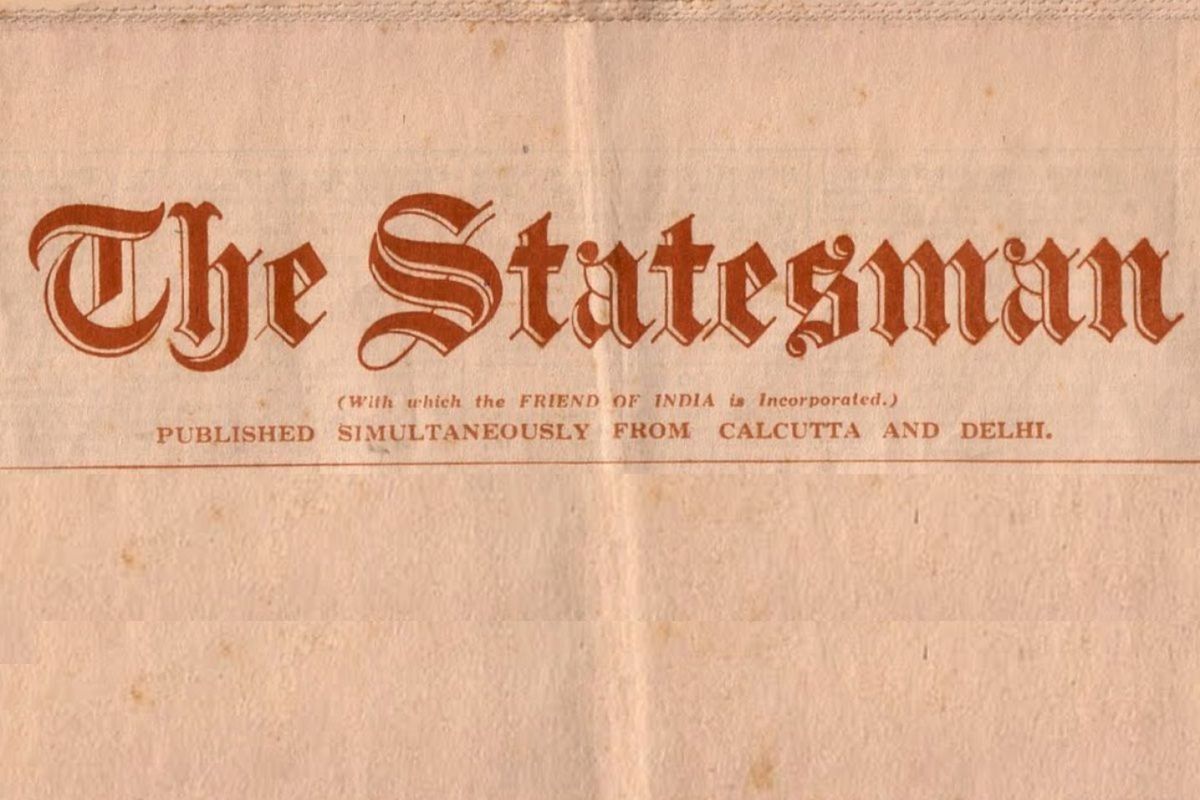Leading women personalities on what it takes to be a woman!
On International Women's Day, The Statesman talked to esteemed women personalities from various fields on what it takes to be a woman in our country and what empowers them.
On this day a century ago, these were some of the news items The Statesman readers got to read about India and the world.

OCCASIONAL NOTE
The criticism passed by the Irish and the Opposition upon the arrest and trial by court martial of Father O’Donnell, and Mr. Winston Churchill’s retort to that criticism, are strangely reminiscent of the Punjab disturbances of last April. “Father O’Donnell’s trial,” Mr. Churchill retorts to the Extremists, “is, according to you, an ‘outrage.’ By what name do you describe the murder of police in the Dublin streets?” To send Indians of the “respectable” classes – so says the Pandit Malaviya in the Imperial Legislative Council – in railway trucks from Gujranwala to Lahore is an “outrage.” By what name do the Pandit and his friends describe the casting of a Scottish bank assistant, still alive, from the third story of a house and the setting light to his body after the application of paraffin? By what name, too, is the deliberate burning of Gujranwala church, railway station, etc., described by the Extremists? The answer is that, since there is no political capital to be made out of those somewhat vulgar happenings, no good Brahmin cares to think about them, much less attempt essays in the choice of le mot juste where their nomenclature is in question. Fortunately the Committee of Inquiry has seen the burnt out ruins – and an appalling spectacle they are – as they stand today. Not much imagination should be necessary to reconstruct the atmosphere in which the military officers and the courts martial – not of their own choice – did their work.
Advertisement
PAPER FOR NEW INDIA
Advertisement
MADRAS, DEC 11
In the High Court today Mr. Justice Trotter delivered judgment in the suit brought by Messrs. Grace and Co. for breach of contract against Mr. B.P. Wadia, manager of New India. Plaintiffs’ case was, briefly, that Messrs. Grace and Co. entered into a contract with Mr. Wadia for the supply of 67 bales of printing paper, that Messrs. Grace and Co. tendered the bales but Mr. Wadia refused to accept delivery even after repeated requests, and that eventually the paper was sold in public auction. Mr. W.H. Oakley in his evidence said that he took the bales of paper to Mr. Wadia but Mr. Wadia refused to accept them unless he was allowed to open each and every one of the bales and weigh the reams. In the result His Lordship gave judgment for the plaintiffs for the damages claimed, less interest, the net amount being Rs 2,085 with costs.
RAILWAY OFFENCES
On receipt of information that the seals of brake vans would be tampered with and thefts would be committed from the brake vans of trains, Sub-Inspector H.C. Mukerjee, of the Howrah Detective Department, with several constables lay in ambush in the railway yard of Asansol, and saw a number of men were engaged in breaking the seals at night. Mukerjee challenged them, and a free fight ensued, in the course of which men on both sides were injured. The police, however, succeeded in arresting two men named Kaloo Methar, an old railway thief, and another while others absconded. Inspectors M.N. Sen and D.N. Mukerjee of the Railway Police heard that shawls, eight bales of which were worth about Rs 30,000 had been stolen from brake vans of the E.I. Railway goods trains were being distributed in villages in the Burdwan district. The Inspectors and other officers raided villages and arrested three men and recovered some shawls.
THE FLIGHT TO AUSTRALIA
Regarding the proposed flights to Australia, whatever may be the case in India, the civil and military authorities in Rangoon have made every preparation, and when the visitors land they will find everything possible has been done on their behalf. The Rangoon race-course though only an improvised aerodrome, will compare favourably with many Home landing grounds. Burma has been left out of the allocation of military aircraft, but Rangoon will play an important part as an intermediate stopping place in flights to Australia and the Far East, and the local Aeronautical Association could do much good work. Moreover the Royal Air Force wishes to keep in touch with ex-members of the flying services which can be more easily effected through a local aeronautical association than by individual notification.
NATURALISATION LAWS
Replying to Sir J.G. Butcher, Major Baird stated that the representatives of the Dominions had not yet expressed their views in regard to the amendment of the naturalisation laws. Replying to a suggestion that the representatives of the Dominions should be requested to reply as early as possible in order that the Bill might be introduced early next session, Major Baird said he was not sure that would meet case, as the matter depended on the deliberation of the committee established by the Imperial Conference.
Advertisement